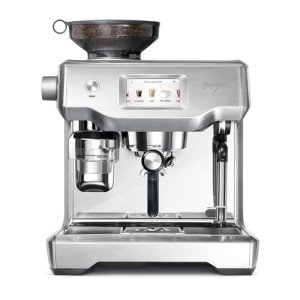The Rise of Home Espresso Machines: A Comprehensive Guide
As coffee enthusiasts continue to seek fresh and flavorful brews at home, the popularity of home espresso machines has actually risen over the last few years. No longer just the domain of coffee shops and cafe, these machines empower individuals to craft barista-quality espresso beverages from the convenience of their kitchen areas. This short article will check out the numerous types of home espresso machines, their features, and considerations for choosing the ideal one. In addition, it will offer a selection of FAQs to assist prospective buyers make informed choices.
Types of Home Espresso Machines
Home espresso machines can be classified into a number of categories based on their mechanisms and user-friendliness. Each type has its distinct features, pros, and cons.
| Type | Description | Pros | Cons |
|---|---|---|---|
| Manual Espresso Machines | Needs the user to manually manage the brewing procedure, including techniques like pulling a lever to produce pressure. | - Complete control over developing process - Compact style | - Requires skill and practice - Time-consuming |
| Semi-Automatic Machines | Machine automates water flow and pressure, however the user still controls the dosing and duration of the brewing process. | - Balance of automation and control - Versatile | - Learning curve for refining strategies |
| Totally Automatic Machines | Automates the entire developing process, from grinding to developing, frequently with programmable settings for customized drinks. | - Extremely easy to use - Quick and hassle-free | - Less control over the developing procedure - Higher price point |
| Capsule or Pod Machines | Utilizes pre-packaged espresso pills or pods to produce coffee quickly and easily. | - Extremely simple to use - Minimal clean-up | - Limited flavor range - More pricey per cup than ground coffee |
| Super-Automatic Machines | Integrates functions of totally automatic machines with built-in mills, allowing users to brew whole bean espresso and milk-based drinks with one touch. | - All-in-one benefit - Ideal for milk-based drinks | - Often the most expensive - Can be large |
Features to Consider
When choosing a home espresso machine, prospective purchasers must consider the following functions to ensure they pick a machine that satisfies their needs:
Grinder Type:
- Built-in grinders can provide fresher premises but might require more maintenance.
- Different mills permit more personalization of grind size.
Pressure:
- Look for machines that produce at least 9 bars of pressure, which is optimum for brewing espresso.
Water Temperature Control:
- Machines with adjustable temperature level settings permit for better extraction of taste from beans.
Milk Frothing Options:
- Consider whether you want a manual steam wand for frothing or an automatic milk frother for benefit.
Reduce of Cleaning:
- Machines with removable parts and self-cleaning functions substantially reduce cleanup time.
Size and Design:
- Ensure the machine fits comfortably in your kitchen and lines up with your visual choices.
Budget:
- Set a budget before beginning your search, as prices can range significantly from affordable models to high-end machines.
Advantages of Home Espresso Machines
Owning a home espresso machine provides numerous advantages:
- Cost-Effective: Over time, brewing espresso at home can conserve coffee enthusiasts cash compared to frequent coffee shop sees.
- Modification: Users can experiment with different beans, grind sizes, and brewing techniques to find their best cup.
- Convenience: The capability to brew espresso at any time removes the requirement to head out to a coffee shop, particularly helpful during late nights or early mornings.
- Quality assurance: With a home machine, people have complete control over the quality of components and developing procedures.
Drawbacks of Home Espresso Machines
However, there are some disadvantages to think about:
- Initial Investment: High-quality espresso machines can be expensive, needing a considerable upfront investment.
- Knowing Curve: Mastering the art of espresso brewing can take time and practice, which may be frightening for newbies.
- Maintenance: Like any device, espresso machines require regular cleansing and maintenance to ensure optimal efficiency.
FAQs
1. What is the best kind of home espresso machine for beginners?
Answer: For novices, a semi-automatic machine is frequently suggested as it offers a balance in between control and automation, permitting you to find out the basics without overwhelming complexity.
2. How much should I invest in a home espresso machine?
Response: Entry-level machines can start around ₤ 100 to ₤ 300, while higher-end models can range from ₤ 500 to over ₤ 2000. It's vital to set a budget based on your expected use and wanted features.
3. Do I require a different grinder?
Answer: While some espresso machines include built-in grinders, purchasing a different grinder enables for greater customization and makes sure much better quality grounds.
4. How typically should I clean my espresso machine?
Answer: Cleaning frequency can differ by machine type, but it's usually advised to clean up the machine after each use and perform deep cleansings weekly or month-to-month, depending upon use.
5. Can I make milk-based drinks with any espresso machine?
Answer: Not all machines include milk frothing capabilities. If you enjoy beverages like lattes or coffees, try to find a machine with a steam wand or automatic frother.
Home espresso machines are transforming the way coffee enthusiasts enjoy their cherished brews. With various types and advanced functions available in the market, there is something for everybody. Whether Home Use Espresso Machines 's the delight of developing unique dishes or just enjoying the best shot of espresso, investing in a home espresso machine can enhance both the coffee-drinking experience and the quality of life for coffee lovers everywhere. Just like any investment, it is crucial to weigh the advantages against the potential drawbacks and pick a machine that effortlessly fits both your lifestyle and choices.

